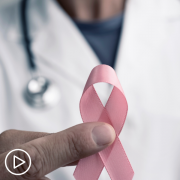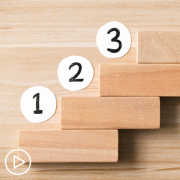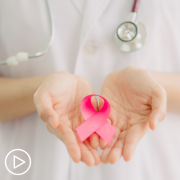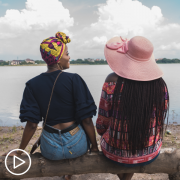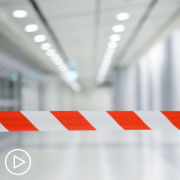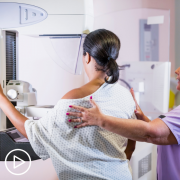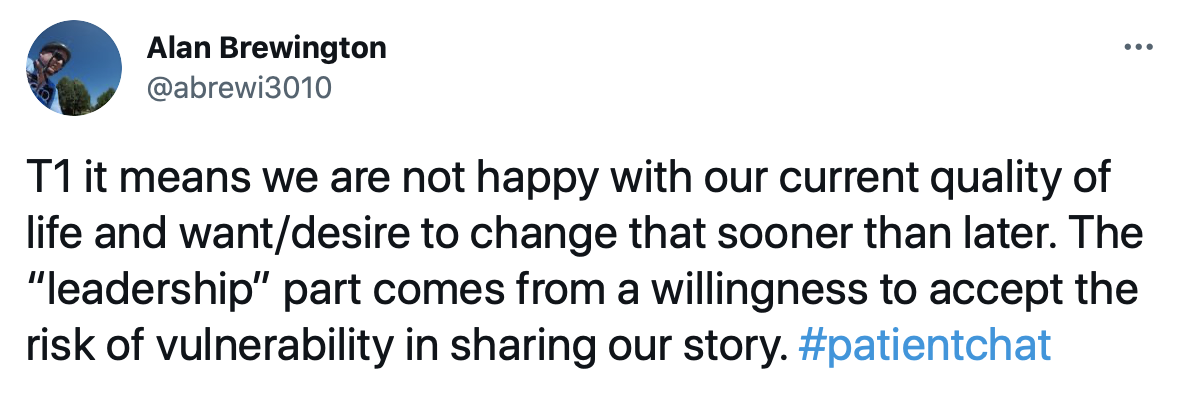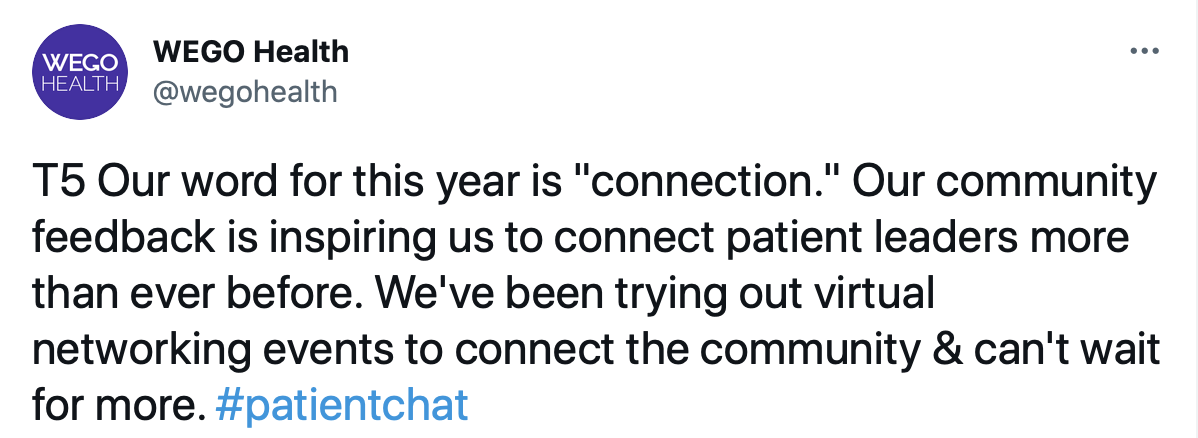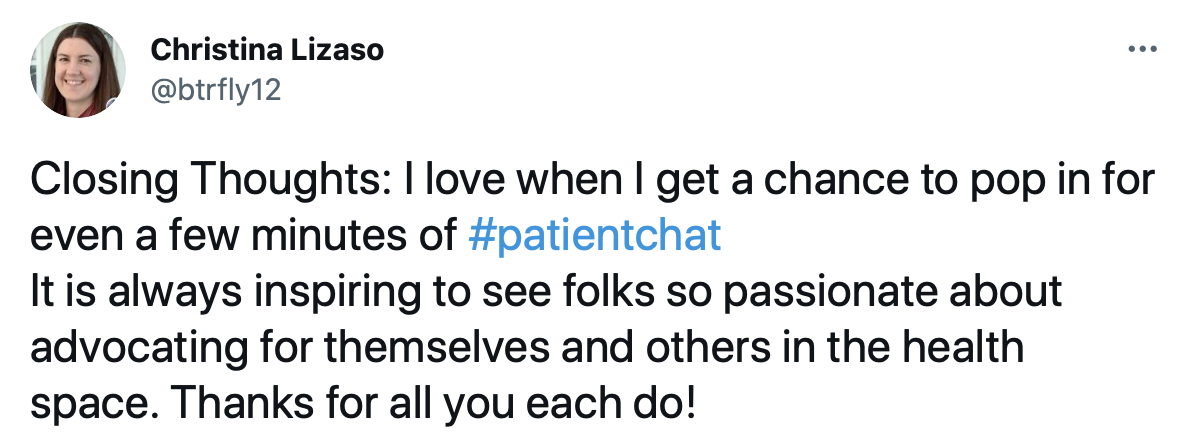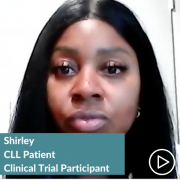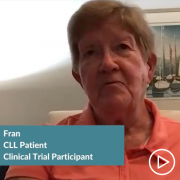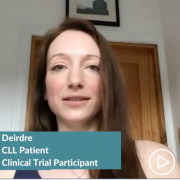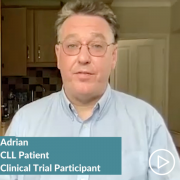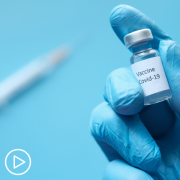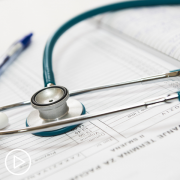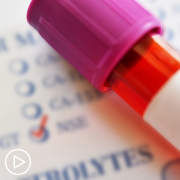How Can BIPOC Breast Cancer Patients Overcome Health Disparities? from Patient Empowerment Network on Vimeo.
How can BIPOC breast cancer patients help overcome health disparities? Experts Dr. Nicole Rochester and Dr. Regina Hampton share ways to be more proactive with breast cancer screening, in interaction with healthcare providers, and in sharing breast cancer stories.
See More From the Best Care No Matter Where You Live Program
Related Programs:
Transcript:
Dr. Nicole Rochester:
You alluded to the different care sometimes that patients of color receive. So I want to shift and talk about racial and ethnic inequities, and unfortunately, we know that with every other illness, unfortunately similarly with breast cancer, there’s a long history of women, particularly in BIPOC communities receiving disparate care, a lot of times they are not offered some of these treatment options, maybe they don’t have access to some of the breast cancer centers, so can you just share some information about some of the disparities that we see, in breast cancer? And then I’m curious to know how you specifically address them being a Black woman breast surgeon
Dr. Regina Hampton:
So, one of the things to know is that as African American women, we tend to get breast cancer at younger ages, and not a lot of physicians know and can recognize that, so it is very important that when a young African American woman has a breast complaint that that’s taken seriously and worked up to make sure that we’re not missing a breast cancer. So, I think it’s important again to have those conversations talking about family history, because we don’t talk about family history, in our families. I’ve had a patient just come in and say, Yeah, well, grandma had a breast missing, no no nobody said cancer, well they probably should’ve said cancer, so we’ve gotta have those health conversations in our family, so I think it’s important for patients to really be their advocate because many times these young women are dismissed and thought, “Oh, you’re too young,” and I’ve even been kind of fooled myself by some of the young women, so knowing that younger women get breast cancer at younger ages, if you think something is going on, you need to really take that seriously. And then I think it’s also talking about the options, we do tend to get a more aggressive form of breast cancer, but the treatments have changed, and while chemotherapy may be indicated for many patients, it’s not for all patients, and so really taking that time to understand what all the options are, “Well, why are you recommending chemotherapy? What’s going to be the benefit for me? What’s the survival benefit for me? What are the side effects? How this going to affect my sex life? How is this going to affect me and my relationship with my children, with work?”
So really just asking all of those important questions, I think it’s also important to ask for what you want. I don’t think we speak up enough, there was actually a study that I was looking out that shows that we don’t get offered reconstruction as often as our white counterparts. The disparity is about 24 percent, and that’s really huge. That’s important. So, we really need to ask those questions and to know, well, maybe I can’t get reconstruction at this juncture, but can I get it in the future, there’s a federal law that covers all of those for all breast cancer patients, no matter what color you are, so again, it’s just asking those questions. Sometimes taking somebody and having somebody else ask the questions can be helpful.
Dr. Nicole Rochester:
Yeah, making somebody else the bad guy, so to speak. Absolutely, any time I have a conversation about health disparities and health and inequities, honestly, I get a little angry inside because for you to share that statistic that we’re not as often offered reconstructive surgery, that is a huge part of our identity as women. Our appearance, our self-esteem, and I just want to point out for our viewers that unfortunately, as Dr. Hampton has stated. A lot of times, these disparities are sometimes due to lack of knowledge, so Dr. Hampton mentioned that Black women tend to get breast cancer at a younger age, and you need to know that if you’re seeing a breast surgeon or even an internist or oncologist who is not a person of color or who is not up-to-date on that information, they may not know those statistics, but unfortunately, there also is this bias that you’ve talked about as well, and we know that we all have bias, we are exposed regularly to negative images, negative stereotypes of African Americans, Latino, Native Americans, and doctors are not immune to that bias and we carry those biases into the exam room, and so for people of color with breast cancer, it is particularly important that you follow these recommendations that Dr. Hampton has mentioned, and I just love that really all of them center around advocacy and speaking up for yourself and standing up for yourself. Are there any other things, Dr. Hampton in closing that you can think of specifically for patients of color, things that they can do to really protect themselves from these inequities that exist in breast cancer care.
Dr. Regina Hampton:
I think we have to really start at the beginning and being more proactive about our screening, making sure that we’re getting those mammograms, making sure that when we get a mammogram, we’re asking for the best mammogram if there’s new 3D technology, making sure that you get that so that we can find things at an earlier stage, and I think also we have to call it kind of throw out all the myths. We got to let them go people, we got to let them go. And I know there have been some challenges and we have had some historical issues, I think Dr. Rochester and I both agree and acknowledge that, but at some point, we have to move forward and be more proactive and really knock down some of those barriers and not let some of those old things that happen hold us back from the new technologies that are available. So, I think the good thing, we’re in a day and age where most early-stage cancers are not a death sentence and we find them early, we can treat them early, and I think we have to just talk in our community, I’m always amazed that many Black women still don’t share their stories.
So, you have women who are in the same circle and don’t realize that the person two seats down went through breast cancer, and you all still go to coffee, and she didn’t share her story. And now you’re facing breast cancer, you’re thinking, “Wow, I’m just alone.” And so, I think we have to really share that, not only in our families, but we’ve got to share it with our sisters, because you never know who you’re going to be helping through that journey. I find it interesting that there’s really a difference between how African American women take a breast cancer diagnosis and white women take a breast cancer diagnosis, and we’re getting ready to really look at this, and I’m really excited about it because I really want to know what is it and why is there such a difference? But I think we have to not hide, we have to really share our stories, and sharing your story is going to help somebody else.
Dr. Nicole Rochester:
Absolutely, I think part of the hiding and even what you mentioned about the family history not being shared as part of this kind of myth that we have to be strong or that Black women are invincible and that we can’t be vulnerable. And you’re absolutely right, we need to talk about this in our circles, we need to talk about it with our daughters or nieces, all of our family members, so that we’re all educated and empowered.
Dr. Regina Hampton:
It’s funny you mentioned that because that’s one of the first things I tell patients to do. I say, “Look, you’ve got to let other people take over, because we’ve got work to do, and kids have got to eat peanut butter and jelly, they’ve just got to eat some peanut butter and jelly, they’ll be all right, but you’ve got to put yourself first.” And I think if we put ourselves first, put our screenings first, we’re good about getting our kids, getting them to their health appointments, we as women have got to get ourselves to our health appointments and put ourselves first, so that we can be there for our families.
Dr. Nicole Rochester:
You just reminded me of something we as women, are really good at taking care of our kids and our spouses and other members of our family, but then we do that at the expense of ourselves, and I can say when I used to practice as a pediatrician, we were trained to address postpartum moms, and people realize early on that, hey, okay, they may not have their postpartum visit for six weeks, but they’re taking that baby to the pediatrician in two or three days, and so we would talk with the postpartum moms about screening them for depression and things of that nature, but I never thought about…you literally just gave me this idea that maybe pediatricians should also be checking in with our patients’ moms and asking them about their screening, I don’t know if they would be offended by that, but it truly takes a village, and so maybe we need to be encouraging the parents of our patients and making sure that they’re getting their regular screenings and their health maintenance as well, because you’re right, we will look out for the babies, and we will put ourselves on that back burner every single time.

